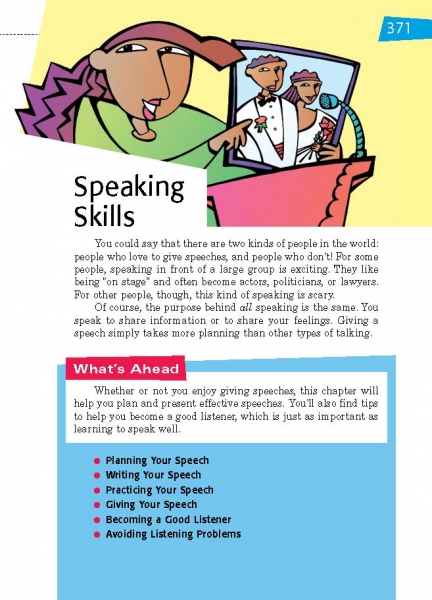Page 371 from

Start-Up Activity
To get your students more comfortable with speaking in front of people, have them read out loud to small groups of classmates. Ask each student to select something that is interesting to them and that they would enjoy sharing—a news article, the lyrics from a favorite song, a favorite poem, etc. Then split the students into groups, and have group members introduce the topic of their reading and read it out loud.
Think About It
“There are only two types of speakers in the world. 1. The nervous and 2. Liars.”
—Mark Twain

Start-Up Activity
To get your students more comfortable with speaking in front of people, have them read out loud to small groups of classmates. Ask each student to select something that is interesting to them and that they would enjoy sharing—a news article, the lyrics from a favorite song, a favorite poem, etc. Then split the students into groups, and have group members introduce the topic of their reading and read it out loud.
Think About It
“There are only two types of speakers in the world. 1. The nervous and 2. Liars.”
—Mark Twain

